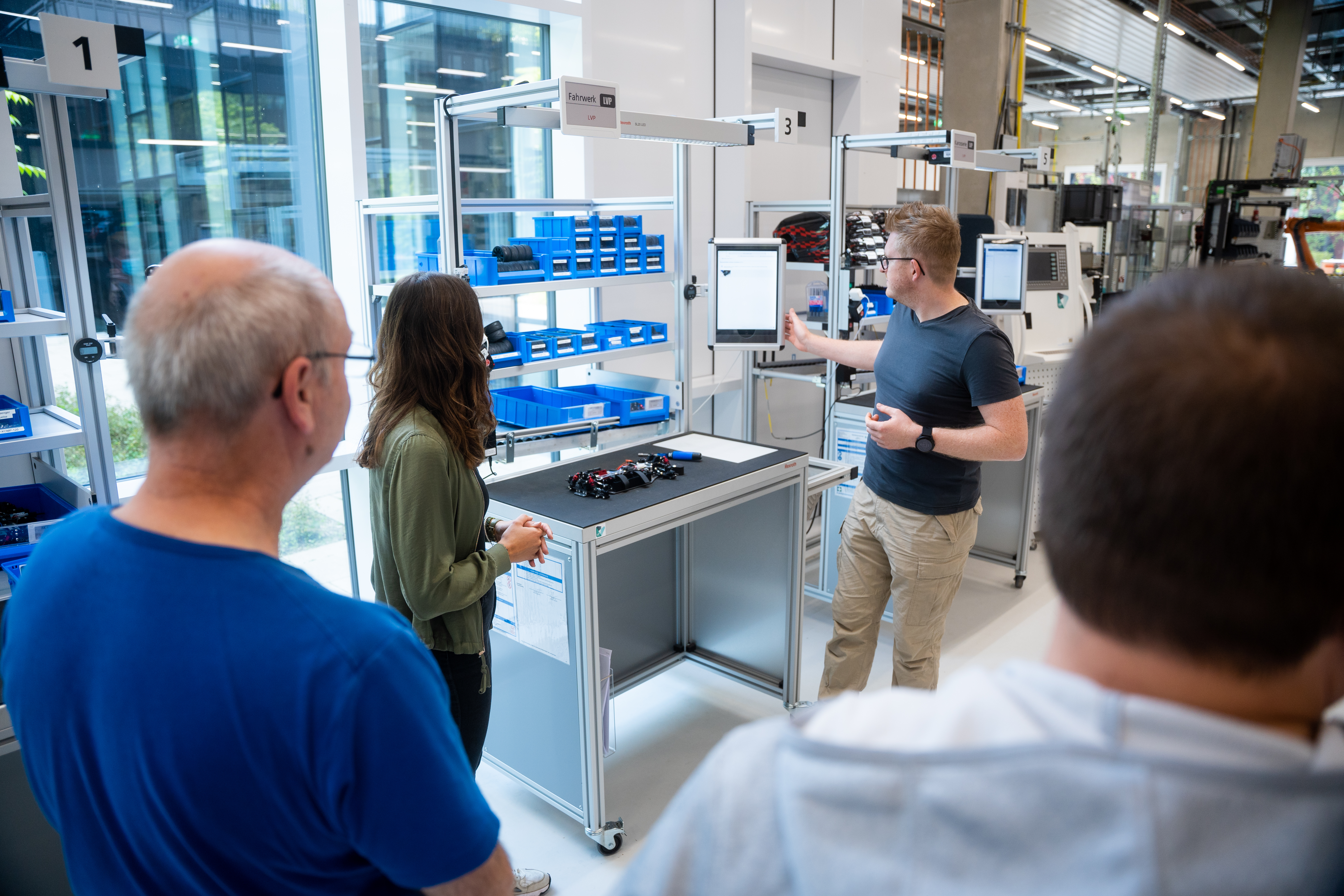Experience digitalization in assembly
In the learning factory for networked production, digitalization in the production and assembly of customer-specific products is brought to life. Remote-controlled cars can be assembled with varying degrees of digitalization. Visitors can try out, test and compare technologies, systems and processes for themselves. They will be shown how data transparency can be used to respond more quickly to customer inquiries, how production can be controlled based on key figures and made more efficient, and how role models can change as a result of digitalization.
Our educational game »from paper-based to digitalized production« is a special highlight for all managers, decision-makers and employees from the production environment and related business areas who are already considering or implementing initial solutions and are fundamentally interested in digitalization!

